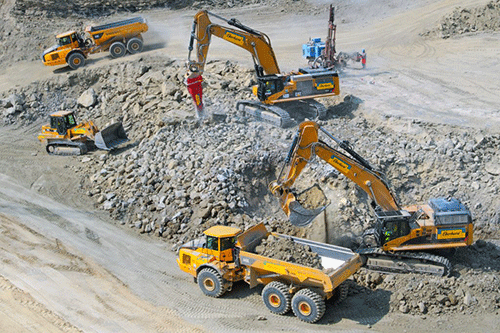The Chamber of Mines of Namibia welcomed Cabinet’s decision to prohibit the exportation of Namibia’s critical minerals in raw form in a bid to create more local jobs and more local value.
On Monday, the chamber welcomed the decision on the understanding that the Cabinet is referring to the ban on the export of mineral ores of all the minerals mentioned in the Cabinet decision.
This submission was made by the mines and energy ministry last week and applies to materials such as unprocessed crushed lithium, graphite, cobalt, manganese and rare earth elements.
At its eighth decision-making meeting on 6 June 2023, Cabinet nonetheless approved that smaller quantities of these minerals may be exported at the discretion of the ministry.
“The measures taken by the government do not inhibit the valuable work being done by companies in Namibia that intend to establish mining operations and processing facilities,” reads the statement released by the chamber on Monday.
The chamber is a member-based organisation that is responsible for the stewardship of mining, exploration and associated activities for the benefit of all stakeholders.
However, the chamber is concerned that the requirement for an endorsement by the Cabinet on exports of ore in small quantities may unintentionally delay genuine test work being carried out by chamber members for purposes of critical metallurgical test work required in the design of the much-needed processing plants in Namibia.
In this regard, the chamber CEO Veston Malango stated the chamber intends to proactively engage the mines and energy minister so that exports of minerals for such purposes should not be unreasonably delayed.
Local value-addition remains a challenge for Namibia, where the majority of its natural resources are still being exported in raw or minimally-processed forms.
This, pundits argue, continues to create valuable jobs in other countries. However, Namibia has been receiving offers to help establish a mineral beneficiation sector amid increased global competition for rare earth minerals, driven by an expanding electric vehicle industry.
The European Union recently confirmed its willingness to support Namibia in further developing a home-grown extractive, refining and recycling industry for raw materials.
Malango added government must control and regulate the export of unprocessed critical minerals to support job creation and grow the economy in line with the African mining vision.
President of the chamber Zebra Kasete added his voice noting that the Cabinet directive will not have any immediate repercussions on the plans of chamber members, as they all have plans to add value locally to the critical minerals at least to the concentrate level and retain jobs in Namibia. “The chamber will proactively engage government to collectively identify processing and value addition opportunities for Namibia’s critical minerals, and what enablers are necessary to make Namibia an attractive destination for investment into value addition opportunities,” he stated.



